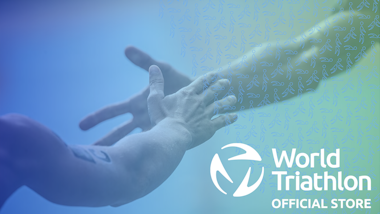The Triathlon Races to Paris: The Third Athletes
21 May, 2024 | español

In the final week of Olympic qualification, everything is slotting into place. Some athletes have prevailed in their intranational races to Paris, such as Jonas Schomburg holding off Lasse Nygaard Priester to make the German team. Some athletes have hit national selection criteria in the late stages, as Luke Willian memorably did in Yokohama. Others have consolidated their positions in the Olympic rankings to earn the right to start in Paris.
One of the most important matters left to settle is the push to secure a third slot at the Games. To receive three berths per gender in Paris, a country needs to place three athletes inside the relevant top-30 of the Olympic rankings. This weekend, WTCS Cagliari stands as the final opportunity to make that happen.
Luckily for some, and perhaps unluckily for others, Cagliari is one of the most valuable races in terms of points. Moreover, late charges cannot be ruled out. At WTCS Yokohama, for example, Willian’s bronze medal launched him seventeen places up the rankings from 41st to 24th. It will only take one similarly big performance to propel an athlete into the top-30 and earn a third slot and one country’s gain may mean another’s loss. WTCS Cagliari, then, could radically change several Olympic equations.
The Male Contenders
Entering the final weekend of the qualification window, only France and Germany have nailed down three men’s Olympic slots. Thereafter, the race is wide open and any of half a dozen countries could seize their moment.
Hungary are in pole position. They have four men currently lodged inside the top-30 with Bence Bicsák, Mark Dévay and Gábor Faldum trailing Csongor Lehmann. So long as three of those four names remain in place by the end of the weekend, Hungary will join France and Germany in sending three male triathletes to Paris.
The Spanish team is also extremely close. While they have two men inside the top-30 (Antonio Serrat Seoane and Roberto Sanchez Mantecon), they have three further men ranked between 31st and 38th. Alberto Gonzalez Garcia leads the way after a stunning start to the season in which he claimed a maiden World Cup win. World Cup winners Sergio Baxter Cabrera and David Castro Fajardo are also in the mix. Like the Hungarian quartet, all of the five Spanish contenders will start in Cagliari.
On the other hand, New Zealand face checkmate when it comes to their third man. Dylan McCullough is the second man inside the top-30 in 30th (behind Hayden Wilde) while Tayler Reid is ranked 36th. On paper, Reid simply has to rise with a good result in Cagliari. However, McCullough is out of Cagliari with injury and so cannot improve his points total. As a result, Reid’s potential elevation into the top-30 can only come at the expense of McCullough. When it comes to joining Wilde on the Olympic team, then, there can only be one.
While the door has closed on New Zealand, it hangs teasingly ajar for several other countries.
Australia will cross multiple fingers in the hope that Brandon Copeland can replicate the feat of Willian in Cagliari. Copeland stands in 44th place, just shy of where Willian was ranked prior to Yokohama. A similar high finish, though, could transform his ranking and earn Australia a third male slot alongside Willian and Matthew Hauser.
The American team is in the same boat. While Matthew McElroy and Morgan Pearson are inside the top-30, Seth Rider is ranked 47th and will need to make a dramatic jump. At the same time, Pearson is only ranked 28th and so could be vulnerable to rises from others.
Canada and Japan will each need two athletes to climb through the rankings. For the former, Charles Paquet has to jump from 32nd while Martin Sobey faces a challenge in rising from 54th. For the latter, Makoto Odakura and Takumi Hojo are ranked 41st and 48th, respectively.
All things considered, Hungary and Spain are the favourites to leave Cagliari with a third male slot. Any of several countries could still pip them to it, though, and the races for the top-30 will be extremely tight.
The Female Contenders
On the women’s side, the situation is a little less competitive as more teams have already sewn up a third slot. Nevertheless, there are still a couple of countries with hopes in the balance.
France, Britain, Germany and America are all safe as all have three women deep inside the top-20, let alone the top-30. Behind the leading quartet, there are two countries with serious hopes of adding a third female athlete.
Italy is as close as can be to making it happen. After Ilaria Zane logged a fourth World Cup top-5 finish of the season last weekend, she now stands 26th in the Olympic rankings and is the third Italian woman behind Bianca Seregni and Verena Steinhauser. So long as Zane holds her position in Cagliari, Italy will insert themselves among the highest echelon of international teams.
The second team in the discussion are Spain. Miriam Casillas Garcia is currently the only Spanish woman inside the top-30 but that could soon change. The 6th place finish of Anna Godoy Contreras pushed her into the top-50 in the rankings (she occupies 49th) while Noelia Juan is ranked 36th. Godoy will likely have to go even better than her Yokohama result to break into the top-30 while a top-15 finish should be enough for Juan.
On paper, Italy has the better odds of securing a third female slot in Paris however the Spanish team cannot be discounted, particularly when both Juan and Godoy have proven themselves capable of hitting the finishes they require.
When it comes to WTCS Cagliari, every single position could yet prove decisive in an individual Olympic quest or in the race for the third athletes. Catch all the action on TriathlonLive and stay up to date with all the latest news across the World Triathlon channels.
tags
olympic qualification paris 2024








